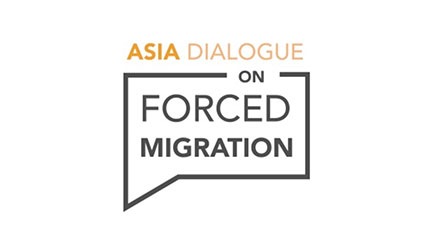Kevin Rudd’s recent refusal
to countenance his Immigration Minister’s
eminently sensible suggestion to remove
the reference to Don Bradman from the Australian Citizenship Test shows that
our new Prime Minister is still afraid of the political power of conservative
cultural warriors.
The most out and proud of these was,
of course, former prime minister John Howard, who, highly placed sources
suggest, was personally responsible for the question that asks prospective
Australians to name the ‘greatest Australian cricketer of the 1930s’. The culture wars, in which he and his cronies
championed an Anglocentric, militaristic and sport-centred version of
Australian history and society against a ‘leftist’ view of Australia that
had supposedly led us into moral relativism and cultural separatism, were a
central theme of Howard’s years in power.
Howard’s
cultural warriors like to portray this as a common sense return to "old ideas
[or traditional values] that should never have been discarded", and invariably
misrepresent Australia’s
multicultural policies as weapons wielded by "cultural elites" against the "host country". What such voices shout so
loudly to disguise are their fear of difference, and their evident inability to
recognise value in any cultural tradition other than that of their own
experience. Their calls to reject multiculturalism
in favour of social cohesion are misguided at best, but, more often, are
completely disingenuous, setting up a false opposition between the two concepts. Social cohesion and
multiculturalism are, in Australia,
two sides of the same social/cultural policy coin: Australian multiculturalism
was a tool by which to achieve and manage social cohesion in the face of
increasing, and increasingly inevitable, cultural diversity.
Despite the attempts of
reactionaries to conflate the two terms in the public consciousness, ‘multiculturalism’
and ‘cultural diversity’ are not the same thing. One – multiculturalism – is a policy response
to the other – the increased racial and cultural diversity within nation states
which is an inevitable, social reality in our globalised world. Perhaps the former needs a re-think and a
re-focus in the face of some obvious failings and inadequacies – as does any
social policy after more than three decades.
But the latter, which results from the free movement of people, is the
inevitable outcome of globalisation and must be embraced as readily as was the
free movement of goods and money.
When reactionary voices call for the abandonment of multiculturalism and
the reinstatement of social cohesion, they are deliberately misusing language
to disguise their real agenda: the rejection of cultural diversity itself and a
return to the Anglo-conformist policies of the White Australian past.
Conformity,
in the more politically correct guise of popular conservatism, was at the heart
of Howard’s culture wars, which reached their zenith with the content of the
Citizenship Test, and the history curriculum that the Howard Government put
together in its last, desperate months.
These highly prescriptive documents sought to dictate once and for all
exactly what it meant to be Australian, and offered the narrowest and most
exclusionary definition our young nation had ever seen.
Howard’s
concession speech on election night alluded to what he saw as his great achievement in
making Australia a "stronger, prouder" country than it had been when he took
power, and his recent addresses to the American neo-conservative elite have
continued this theme. The former PM and
his ideological bedfellows doubtless believe that Howard left Australia "a stronger, prouder and more prosperous nation than it had
been twelve years earlier". But they’re wrong.
Conformity
is the enemy of everything Australia
is and needs to be in the twenty-first century. It stifles creativity and
innovation, threatens security and peace, undermines individual and social
health, and limits economic growth.
After
more than a decade of leadership that relentlessly pushed conformity on the
Australian people, it’s time to reassert the power and potential of cultural
diversity. The subject was conspicuously
avoided by the Australian Labor Party in the lead up to last year’s election, a
deliberate tactic adopted by Rudd to avoid being wedged by Howard in a debate
that was seen as unwinnable. It
worked. But now that he’s in power, Rudd
must pull his head from the sand and re-engage with an issue that goes to the
heart of Australia’s
future.
What this
doesn’t mean is a revival or continuation of the culture wars. The back and
forth accusations of self-appointed cultural warriors do little to advance the
debate, and rarely make sense to most people.
What
it does mean is re-framing the debate in terms everyone can understand and,
crucially, in a way that does not divide Australians into "us" and "them". Just as the climate change debate took a
decisive turn with the release of Nicholas Stern’s report
on the economic impact of global
warming, so the diversity debate can only be won when the arguments are removed
from the emotive realm of the culture wars and repositioned within the
framework of a rational, evidence-based argument that demonstrates both the
inevitability and the potential of diversity in our everyday lives.
Of course,
while climate change, or global warming, is a scientific phenomenon, the
concept of cultural identity is much more nebulous. Arguments about diversity and social cohesion
are complicated by the intensely personal, and often highly emotional,
responses of people to any perception that government or the state is
attempting to impose upon their individual sense of self. In the face of myriad
different interpretations of the role of cultural identity, and opposing views
of the rights of individuals to maintain divergent cultural traditions while
participating in and contributing to a single "national" culture, applying the
scientific logic of the Stern Report to the issue of a culturally diverse but
socially cohesive Australia may appear to be impossible. But the value of cultural diversity can be
measured, and proven, against many apparently disparate policy objectives.
The Rudd
Government is urgently engaged in developing a series of policies and programs
that seek to build human and social capital, to increase productivity, and to
encourage innovation in business, all in the pursuit of continued economic
growth and the security of Australian society in the face of
globalisation. Embracing diversity is
the only sensible approach by which to make progress on these very worthy
goals.
The
best local and international research backs this up. Philippe Legrain, author of
Immigrants: Your Country Needs Them,
makes a forceful case for cultural diversity, demonstrating that its greatest
economic benefit is the generation of new ideas and innovative
entrepreneurship: "Instead of following the
conventional wisdom, immigrants tend to have a different point of view…as
outsiders, they are more determined to succeed". Legrain points out that twenty-one of Britain’s Nobel Prize winners arrived in the UK as refugees.
Similarly,
in The Rise of the Creative Class, Richard Florida explains the benefits of cultural diversity
in attracting talented people to areas in need of economic regeneration, noting
that "…regional economic growth is powered by
creative people, who prefer places that are diverse, tolerant and open to new
ideas".
Moreover, while diversity is often blamed for insecurity and mistrust,
insistence on conformity can actually be counter-productive when it comes to
social cohesion. A society that celebrates diversity rather than
insisting on a conformist way of life is more likely to make people of
different backgrounds and beliefs feel welcome, and more able to accommodate a
plurality of views. As Rosemary Hollis of Britain’s
Chatham House has
pointed out when speaking of the "homegrown" terrorist threat within the UK, people who feel included in society
are less likely to become violent or radicalised.
This
point was made forcefully in the recent Four Corners program, Dangerous Ground, in
which Sally Neighbour canvassed the views of Australian Muslims who have
suffered increasing prejudice over recent years, and of those community leaders
who are working to overcome the dangerous sense of marginalisation this has
produced.

Until
the return of cultural conformity under Howard, Australia had largely avoided the
kind of "ethnic tension" which has often threatened social cohesion in many
European countries. This is largely due to Australia’s proud, if recent,
tradition of recognising diversity as a positive force. Since the embrace of
multiculturalism by the Whitlam and Fraser Governments in the 1970s (perhaps
the only issue on which these bitter political foes agreed at the time), the
Australian approach to immigration was one of give and take, rather than the
"with us or against us" mentality that was espoused by Howard and his
xenophobic neo-conservative cronies.
Unlike the policies of many European countries, which saw immigrant
populations as separate from the mainstream and, in many cases, did indeed lead
to the creation of cultural silos.
Australia’s approach to
multiculturalism always involved an equal emphasis on cultural rights and
social responsibilities. The Australian covenant offered respect for individual
cultural identity and the embrace of diversity in return for a commitment to
the rules and mores of the new, or "host", nation and an active contribution to
its cultural development and social cohesion. For more than two decades, this
covenant put Australia
in the vanguard of the international approach to managing cultural diversity:
it is this, not the destructive conformism of the Howard years, that produced
the harmonious multicultural society that is now held up as a model for other,
more culturally fractured, Western nations.
In order to
recover Australia’s
diversity advantage, the Rudd Government should make a clean break with the
sullied recent history of cultural diversity debates, and perhaps consider
replacing the sadly discredited term "multiculturalism" with one that
accurately reflects the objectives of maintaining social cohesion in a
culturally diverse society. Such an approach must, most crucially, reject the
stultifying conformity called for by reactionaries in the culture wars, and
stress the benefits to all Australians of a pluralist, diverse, creative and
innovative national culture.
A
strong first step might be to establish an Office
for Diversity and Social Cohesion (ODSC) within the Department of Prime
Minister and Cabinet, to replace the Office for Multicultural Affairs which was
abolished in the first Howard Government.
This
office could then oversee a whole-of-government approach to promoting creative diversity and
economic growth within a socially cohesive and peaceful Australia,
ensuring our cultural diversity is both nurtured and exploited to the ultimate
advantage of every Australian, from every walk of life.
There will
always be those who want to lock our borders, put up walls and retreat from the
reality of the modern world. It cannot be done. Technologies of communication
and transport won’t be contained; at an ever-increasing pace, people will move
around the world in search of a better life, as they have since time
immemorial. Australia,
a country of immigrants, must leave its conformist era behind and once again
embrace the diversity that has been, and will continue to be, our greatest
source of strength.
|
[adsense:234×60:1:1] |



